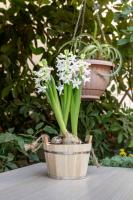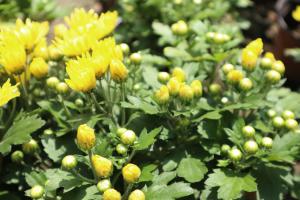How Far Apart Do You Plant Dwarf Fruit Trees?
Dwarf fruit trees are a great option for those who want to grow fruit trees in small spaces or containers. One question that frequently comes up is how far apart these trees should be planted. In this article, we will explore the factors that determine the spacing of dwarf fruit trees and provide guidelines for planting them.
Factors That Determine Spacing of Dwarf Fruit Trees
There are several factors to consider when determining the spacing of dwarf fruit trees:
Rootstock
The rootstock is a critical factor when determining the spacing of dwarf fruit trees. The rootstock determines the ultimate size of the tree and the spacing required. Dwarf fruit trees are usually grafted onto rootstocks that limit their growth. As a general rule, the smaller the rootstock, the closer the trees can be planted.
Tree Type
The type of tree is also an important factor when determining spacing. Some trees, such as apples and pears, tend to have a more upright growth habit, while others, such as peaches and plums, tend to have a more spreading growth habit. This can affect the spacing required, as more space may be needed for trees with a spreading habit.
Soil Type
The soil type can also affect how far apart dwarf fruit trees should be planted. Trees planted in poor soil may not grow as vigorously as those planted in good soil, so they may need more space to develop properly.
Climate
The climate is another factor to consider when determining the spacing of dwarf fruit trees. Trees planted in cold climates may need to be spaced farther apart to allow for better air circulation and light penetration, while trees planted in warmer climates may need to be spaced closer together to optimize pollination and fruit production.
Guidelines for Planting Dwarf Fruit Trees
Based on the factors above, here are some guidelines for planting dwarf fruit trees:
Apples and Pears
Dwarf apple and pear trees can be planted as close as 6 to 8 feet apart, but a spacing of 10 to 12 feet is better. This allows for adequate air circulation and light penetration, which can help reduce disease and increase fruit production.
Peaches and Plums
Peach and plum trees tend to have a more spreading growth habit, so they need more space. A spacing of 12 to 14 feet is usually recommended for dwarf peach and plum trees. Trees that are planted too close together may have reduced fruit production and be more susceptible to disease.
Cherries
Dwarf cherry trees can be planted as close as 8 to 10 feet apart, but a spacing of 12 to 14 feet is usually better. Cherries tend to have a more upright growth habit, so they may not require as much space as peaches and plums. However, adequate air circulation and light penetration are still important for good fruit production.
Citrus
Dwarf citrus trees can be planted closer together than other fruit trees. A spacing of 6 to 8 feet is usually recommended for dwarf citrus trees. Citrus trees tend to have a more compact growth habit, so they can be planted closer together without reducing fruit production.
Conclusion
The spacing of dwarf fruit trees depends on several factors, including the rootstock, tree type, soil type, and climate. When planting dwarf fruit trees, it is important to consider these factors and follow recommended spacing guidelines. This will help ensure that the trees grow properly, produce good fruit, and are less susceptible to disease.

 how many times do yo...
how many times do yo... how many planted tre...
how many planted tre... how many pine trees ...
how many pine trees ... how many pecan trees...
how many pecan trees... how many plants comp...
how many plants comp... how many plants can ...
how many plants can ... how many plants and ...
how many plants and ... how many pepper plan...
how many pepper plan...






























